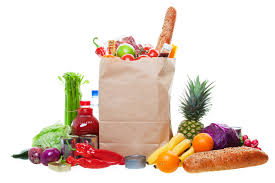记忆方法
将“grocery”与“gro”联想,想象自己在一片“gro”(表示茂密的)果园里挑选各种“ery”(类似的)农产品,这样“grocery”就可以记忆为“杂货店”,即卖各种食品和日常用品的商店。
以上内容由AI生成, 仅供参考和借鉴
英语词源
- grocery (n.)
- mid-15c., "goods sold by a grocer;" earlier the name of the Grocer's Hall in London (early 15c.), from Old French grosserie, from grossier "wholesale merchant" (see grocer). Meaning "a grocer's shop" is by 1803, especially in American English, where its use in that sense restricted the "goods sold by a grocer" meaning to the plural, groceries, by mid-19c.
GROCERY. A grocer's shop. This word is not in the English dictionaries except in the sense of grocer's ware, such as tea, sugar, spice, etc.; in which sense we also use it in the plural. [Bartlett, "Dictionary of Americanisms," 1859]
Self-service groceries were a novelty in 1913 when a Montana, U.S., firm copyrighted the word groceteria (with the ending from cafeteria used in an un-etymological sense) to name them. The term existed through the 1920s.
权威例句
- 1. I worked stocking shelves in a grocery store.
- 我在一家杂货店工作,负责为货架上货。
- 2. He was employed at the local grocery store as a delivery boy.
- 他受雇于当地杂货店当送货员.
- 3. Grocery stores sell many foods that have been processed.
- 食品杂货店出售多种加工食品.
- 4. There hangs straight on the wall of this grocery a service pledge.
- 这家副食店在墙上端端正正挂着一张服务公约.
- 5. Her mother began operation of a small grocery.
- 她母亲开始经营一家小杂货店.
